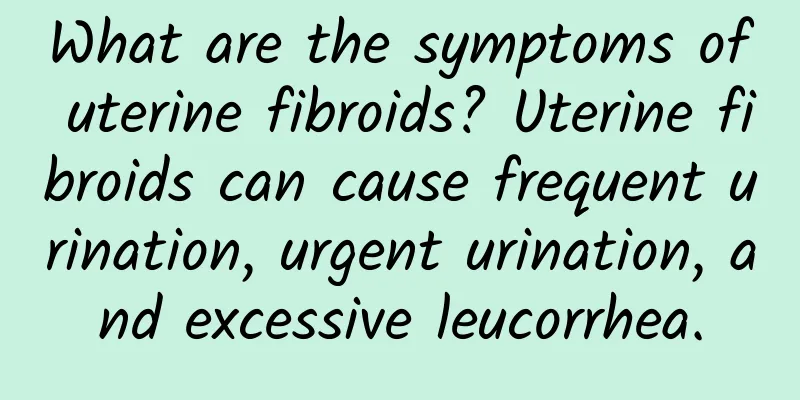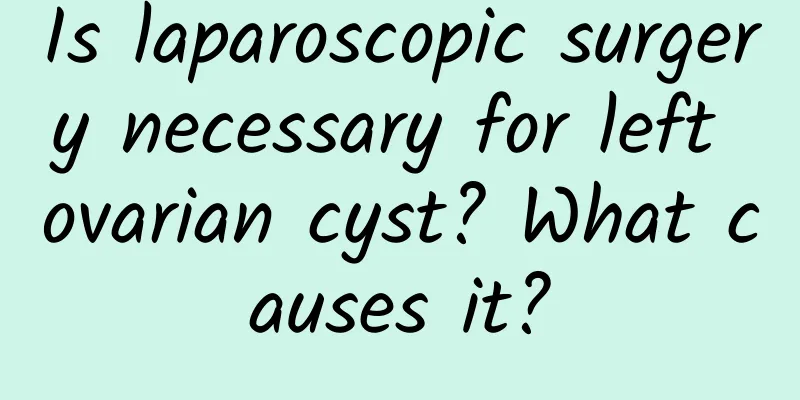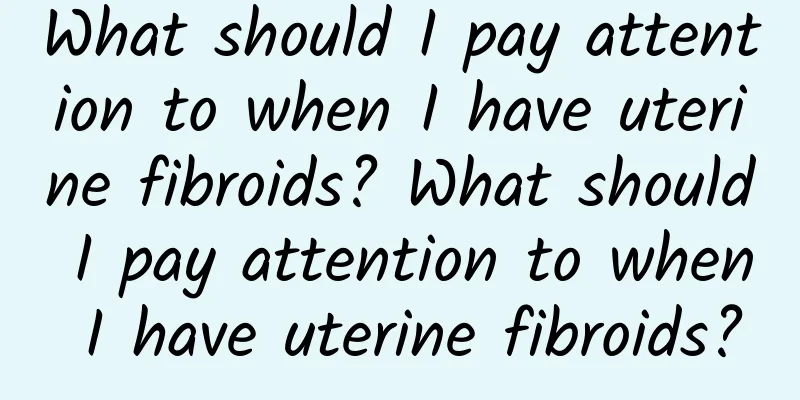What are the symptoms of uterine fibroids? Uterine fibroids can cause frequent urination, urgent urination, and excessive leucorrhea.

|
Uterine fibroids, also known as uterine leiomyoma, are the most common benign tumors of the female genitalia. Most are asymptomatic, with a few showing vaginal bleeding, abdominal tumors and compression symptoms, such as pedicle torsion or other conditions that can cause pain, which is common in multiple uterine fibroids. Most patients have no obvious symptoms and are only occasionally found during pelvic examinations. As a common gynecological disease, uterine fibroids often have different effects on patients, but many uterine fibroids often have many negative effects on the health of patients. Therefore, it is very important for everyone to learn to recognize the symptoms of uterine fibroids in daily life. So, what are the typical characteristics of uterine fibroids? 1. Constipation: Normal bowel movements are normal, but suddenly there is difficulty in defecation and tenesmus. 2. Urgent and frequent urination If there is no disease in the urinary system itself, urgency and frequent urination will occur. Even if it is urination disorder and urine retention, uterine fibroids will compress the bladder. 3. Due to the increase of uterine cavity, vaginal secretion increases, glandular secretion increases, leading to increased leucorrhea. When the surface of submucosal fibroids is accompanied by infection, a large amount of bloody or purulent leucorrhea will appear, and there will be a pungent odor. 4. Anemia: Long-term excessive menstrual bleeding caused by uterine fibroids can lead to secondary anemia. In severe cases, symptoms may include general fatigue, pale complexion, shortness of breath, and palpitations. 5. Menstrual abnormalities include shortened menstrual cycles, about once every 20 days, longer menstrual duration, and increased bleeding volume. 6. When uterine fibroids gradually increase in size and the abdominal mass protrudes into the abdominal cavity, a hard and active mass can be felt in the lower abdomen in the morning when the stomach is empty or the bladder is full. Uterine fibroids are neoplasms that generally do not disappear naturally. It is worth noting that the nature of uterine fibroids can change. The best result is tumor shrinkage, but sometimes infection and necrosis may occur. Some people think that taking some medicine can cure uterine fibroids, which is misleading. Uterine fibroids are difficult to "disappear". Long-term use of so-called "disappearing" medicines can cause liver and kidney damage. |
Recommend
Losing weight but gaining weight again? Don’t make these 3 NG weight loss mistakes! Nutritionist recommends: 6 tips for gentle weight loss with 1410 fasting
People who try various ultimate weight loss metho...
What medicine is good for adnexitis?
What medicine can cure uterine adnexitis quickly?...
Menstruation half a month earlier
Menstruation half a month earlier Menstruation ha...
What are the pathological manifestations of female cervical erosion?
Cervical erosion is a relatively common gynecolog...
Why does my stomach hurt like menstruation after abortion? 2 ways to relieve lower abdominal pain
If the pain in the lower abdomen after abortion i...
What should be checked for secondary amenorrhea
For secondary amenorrhea, the priority should be ...
What are the treatments for adnexitis?
Medical research shows that adnexitis is a common...
Causes and treatments of pelvic effusion
Causes and treatments of pelvic effusion: Pelvic ...
What is cervical hypertrophy? Does it need treatment?
Cervical hypertrophy refers to the hyperplasia an...
Double yolk mooncakes are high in calories, but you won’t get fat if you eat 3 of them
Love to eat but afraid of getting fat? During the...
What kind of situation belongs to vaginitis?
What kind of situation belongs to vaginitis? It i...
Methods for treating vaginitis during pregnancy
If pregnant women do not treat vaginitis in time,...
Teach women some ways to relieve dysmenorrhea
The emergence of dysmenorrhea has brought certain...
What are the commonly used methods for diagnosing vulvar leukoplakia in women?
Itching, dry skin, thickening and whitening of fe...
What are the precautions for vulvar leukoplakia
The existence of vulvar leukoplakia seriously end...









